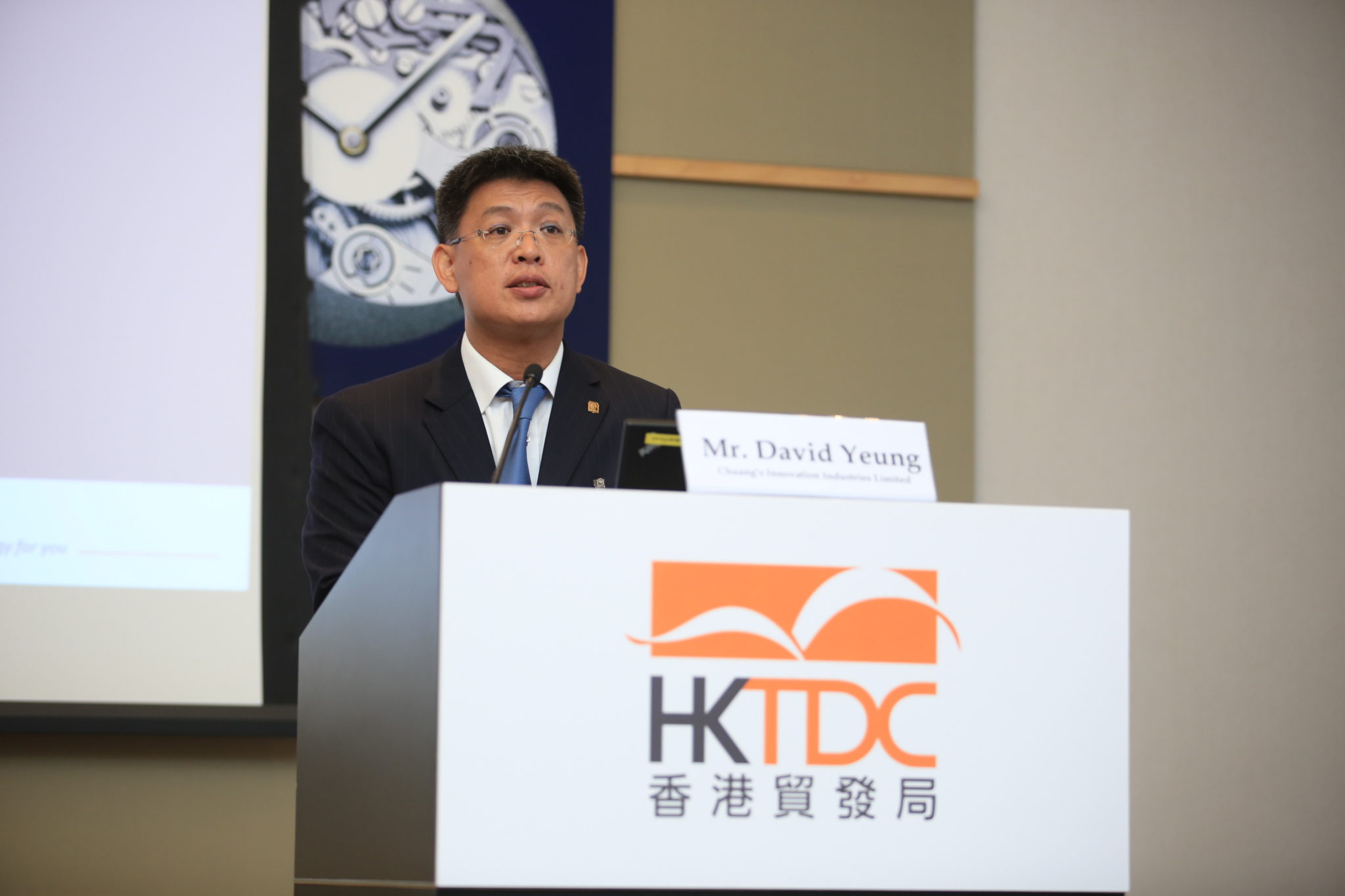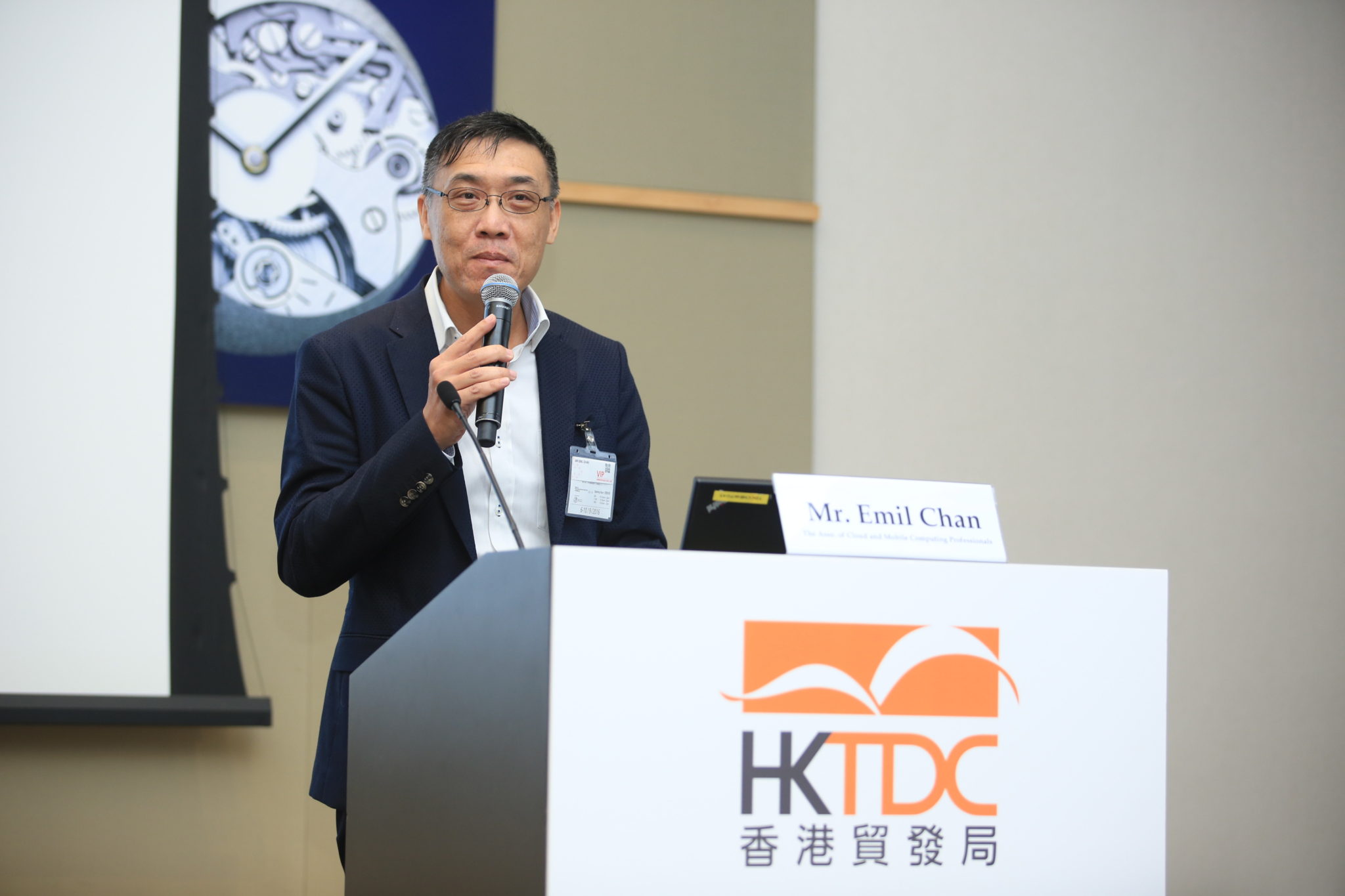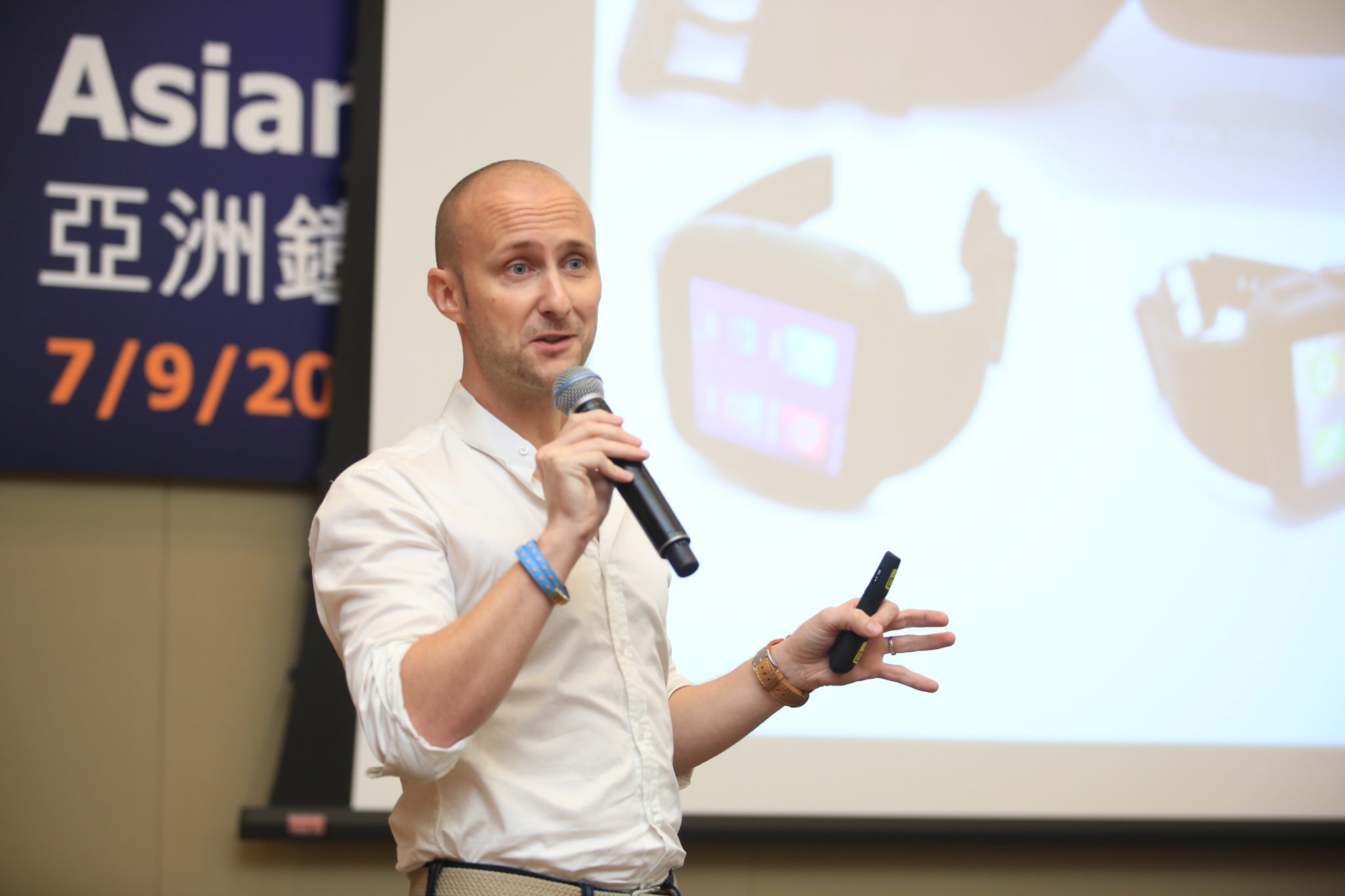9 September 2016 – Apple has just released the long awaited next generation iPhone, together with the second generation Apple Watch, with waterproof and built-in GPS function. And experts predict that smart wearable devices combining different functions will continue to shape timepiece industry trends for years to come. Three industry professionals shared their insights on the theme of “The Next Wave of Movement in Time” at The Asian Watch Conference held on 7 September during the HKTDC Hong Kong Watch & Clock Fair.

New breakthroughs in smart watch technology
David Yeung, CEO at Chuang’s Innovation Industries Ltd, is upbeat about the market prospects for smart watches. “A smart watch makes all the functions of phones available on the user’s wrist instead of in the pocket. Its market growth will be overwhelming,” says Mr Yeung.
Yet, some issues are slowing down the development of smart devices, according to Mr Yeung. He shared two news stories about Apple Watch, one about adding GPS function to the device and the other addressing the limited capacity of its battery. “Smart watches have high growth potential but the growth has been limited by the lack of killer applications,” he added.
The fundamental problem, according to Mr Yeung, is the limited physical size of smart watches. In other words, how can a small watch case embody all the functions and features such as a super-high capacity battery, Wi-Fi connection and larger screen for text, among other things? Mr Yeung proposed enhancing the functionality of the strap and clasp of the watch to help solve the problem.
With extensive experience in manufacturing traditional watch straps, Mr Yeung started to design, develop and manufacture straps for smart watches three years ago.

Innovative technology incorporated into straps and clasps
Mr Yeung noted that the watch strap launched by the smart watch brand Pebble Time, has an in-built battery with a capacity of 600mAh, which is on par with some older models of smart phones, and an independent GPS function. In addition, Near Field Communication payment functions can be applied to smart watches by integrating a sensor into the strap. Only 3.5 mm thick and made with soft silicon materials, the smart watch strap is just as comfortable and attractive as traditional ones, he said.
Mr Yeung believed that smart watches will embrace huge market opportunities in the next 20 years and that traditional watch and strap manufacturers could consider investing in the research and development of relevant products. He expects Apple Watch to unveil hidden port configuration in the future, which will allow manufacturers to develop different additional functions on the device.

Application of financial technology
With its increasingly common payment function, smart watches can be infused with Fintech (Financial technology) and set a new trend for the timepiece industry, according to Emil Chan, Chairman of The Association of Cloud and Mobile Computing Professionals, who has rich experience in the finance industry.
Mr Chan said that the incorporation of payment functions in smart phones is a great success and a typical example of combining innovative technology with the financial world. Fintech is increasingly popular around the world, according to Mr Chan. “Sweden is a cash-free country now. Even if you want to donate money to a church, they don’t use cash anymore. When you buy a sausage at a temporary food stall in Australia, you pay by scanning a QR code. In China, you can pay with WeChat payment; even at a car park, no meter is required for cash payment now,” he noted.
Mr Chan believes that all functions of a smart phone can be introduced into wearable devices with health-related functions having particularly good market potential. “For instance, wearable technology installed in underwear of elderly people or children can transmit data to the cloud system that allows carers to monitor their health condition,” he said, adding that, instead of pursuing breakthroughs in terms of function, manufacturers should also incorporate elements of fashion in their smart watch products.
Gaining popularity through online campaigns
Laurent Le Pen, Founder and CEO of Omate Ltd, who raised about one million US dollars through crowdfunding website Kickstarter.com, shared his experience in online crowdfunding. Omate started as a mobile phone designer, before transforming into an OEM in Shenzhen focussing on smart phones since 2013.
Mr Le Pen recalled that when the company’s was preparing its first project True Smart, it needed US$100,000 additional funding. That was about the time when Kickstarter first came into the market. “We spent US$5,000 shooting a promotion video and drew more than 4,000 supporters. We ended up raising over a million US dollars, which was 10 times as much as we first expected. And we gained wide media attention afterwards.”
Mr Le Pen noted that crowdfunding websites can help a company raise funds and raise their profile at the same time. Citing the company’s motto “Technology is what we carry and fashion is what we wear”, Mr Le Pen said that Omate’s smart watch projects have achieved crossover with many different brands, such as the luxury jewellery brands under Richline Group. They have also developed functions that are useful for elderly people and children.
The 35th edition of HKTDC Hong Kong Watch & Clock Fair is co-organised by the Hong Kong Trade Development Council, Hong Kong Watch Manufacturers Association Ltd and The Federation of Hong Kong Watch Trades and Industries Ltd. The five-day fair (6-10 September) is being held at the Hong Kong Convention and Exhibition Centre.
